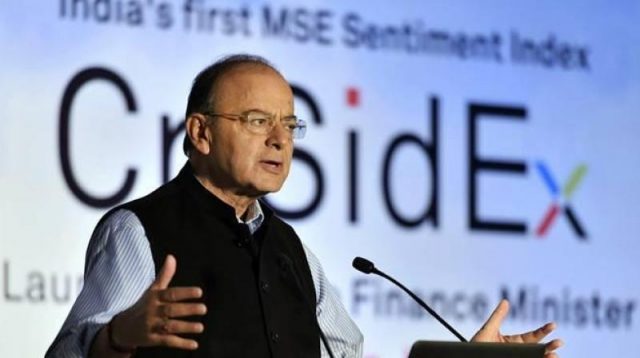Amidst a number of high profile scams, the Union Cabinet has approved the Fugitive Economic Offenders Bill, 2017 which is likely to pass in the Winter Session in order to tighten the noose on economic offenders and defaulters who flee India.
Who is a ‘fugitive economic offender’?
As mentioned in The Hindu, a ‘fugitive economic offender’ is any individual against whom a warrant for arrest in relation to a scheduled offence has been issued by any court in India, who:
(i) leaves or has left India so as to avoid criminal prosecution,
(ii) refuses to return to India to face criminal prosecution
What Is The Threshold Value Of Cases To Come Under The Scanner?
As stated in the bill, the minimum value of the concerned cases should be Rs. 100 crores.
How Does It Take Place?
After the concerned person has been framed under the new clauses of the bill, his property will be confiscated by the government and no trading can take place in those properties and a notice will be sent to the person and anyone else who has interests in the attached property.
If the person doesn’t turn up within the stipulated time, the properties that the fugitive has left behind will be controlled by the state. The important point to note is that any court in India can disentitle any individual or company from filing or defending a civil claim regarding the confiscated property after the above stipulated period is over.
An administrator will be promptly appointed to deal with this property and settle the claims of the creditors.
Existing Laws And Their Limitations
A number of laws are already in place in India in regards to non payment of dues but none of them explicitly deal with the persons who might have absconded in spite of a criminal case pending against them.
Civil laws like The RBI Master Circular On Wilful Defaulter, SARFAESI Act, Recovery Of Debts Due To Banks And Financial Institutions Act and IBC deal with the issue of non-repayment of debt but doesn’t have special provisions for high-value economic offenders like Nirav Modi, Vijay Mallya, etc. who flee the country, just in time.
Also read: The Great Fall Of Reliance Communications
Is The Bill Too Harsh?
In clear-cut terms, the government has stated that “all necessary constitutional safeguards in terms of providing hearing to the person through counsel, allowing him time to file a reply, serving notice of summons to him, whether in India or abroad and appeal to the High Court have been provided for”.
As pointed out by Abhinav Sekhri, who writes for the Caravan Magazine, two things that seem to be completely unjustified in the bill are:
- Disentitling a company from defending itself in civil proceedings threatens to risk all of its shareholders for the possibly illegal conduct of only one person.
- The bill allows the seizure of all of the offender’s property in India, regardless of how much property would need to be confiscated to pay off the actual liabilities which could be lesser.
Also, as mentioned by Sandeep Grover, a partner at law firm Indus Law,
“The blanket disentitlement from pursuing or defending any civil claim under the law should be clarified and made reasonable. An absolute ban is contrary to the basic tenets of justice and fair play, besides being in violation of the Indian Constitution.”
These are genuine concerns that must be looked at by the government without compromising the true essence of the bill which looks to be a step in the right direction.
Sources: LiveMint, Economic Times, Scroll
Images- Google, livelaw
Also Read:
http://edtimes.in/2018/02/who-are-gupta-brothers-and-how-did-they-bring-about-crisis-south-africa/
http://edtimes.in/2018/02/what-can-india-do-in-the-maldives-crisis/





































